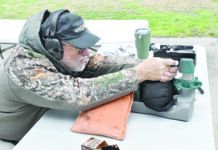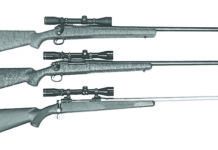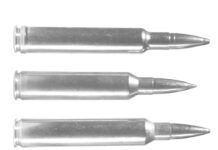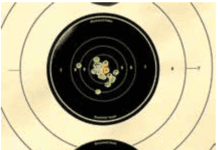The Massachusetts Gun Control Act of 1998 continues to plague Massachusetts gun owners, and it has become particularly oppressive for retail handgun consumers, a Gun Tests reader writes us from the Bay State. Hes very involved in certain aspects of the regulatory process, and his background on how Second Amendment rights continue to be eroded there raised my eyebrows.
Among the many provisions of the Act are a complicated set of handgun testing requirements that apply to handguns sold by Massachusetts firearms dealers.
The first of these requirements is a handgun performance test that requires three samples in new condition to fire 600 rounds each without breakage and with no more than six malfunctions.
The second test is a drop test of a loaded handgun, in which five samples in new condition must be dropped from various positions onto a slab of concrete without discharging.
The third test certifies that the handgun fires only once for each pull of the trigger and will not explode upon firing.
The final test is an accuracy test, in which handguns with barrel lengths of less than 3 inches must be tested at various distances from the target so that an average group diameter test result can be determined for a particular model. While testing handguns is something most manufacturers already do as part of their quality-control efforts, these state-mandated tests are much more complicated than they first appear.
The actual tests must be done by a state-approved, independent testing laboratory. Once testing is completed, the laboratory must forward a report to the state for review and possible inclusion on the states Approved Firearms Roster. If a Massachusetts dealer sells a handgun not on the roster or otherwise exempted, he could be charged with a felony punishable by up to a $10,000 fine or up to 10 years in prison.
The problem for the dealers-and ultimately for consumers-is that inclusion on the Approved Firearms Roster simply means that the handgun is in compliance with one aspect of states handgun requirements. It does not necessarily mean the handgun can legally be sold in Massachusetts. Unfortunately, the rosters usefulness is limited by the existence of the Massachusetts Attorney Generals handgun consumer protection regulations, which not only require testing, but also in some cases requires handgun design changes. A dealer selling a handgun in violation of these regulations faces a $5,000 civil fine for each such sale.
What do these conflicting laws mean for the Massachusetts handgun consumer? They mean that unless the handgun was lawfully owned in Massachusetts prior to October 21, 1998, when the Gun Control Act went into effect, or is in compliance with both the statutory requirements and the consumer protection regulations, the handgun cannot be sold by a Massachusetts dealer.
But theres a bigger problem: Massachusetts dealers do not currently know what they can and cannot sell. The aforementioned roster has not yet been published. The Attorney General refuses to use any kind of roster and will not advise either manufacturers or dealers which handguns are in compliance with the consumer protection regulations. The confusion and fear of violating these complex and conflicting laws has caused many dealers to stop selling handguns altogether.
The picture for the Massachusetts handgun consumer is bleak. Higher handgun prices, unwanted design changes, fewer model choices, and an expensive and almost non-existent used handgun market is fast becoming a fact of life in Massachusetts.
-by Todd Woodard




























